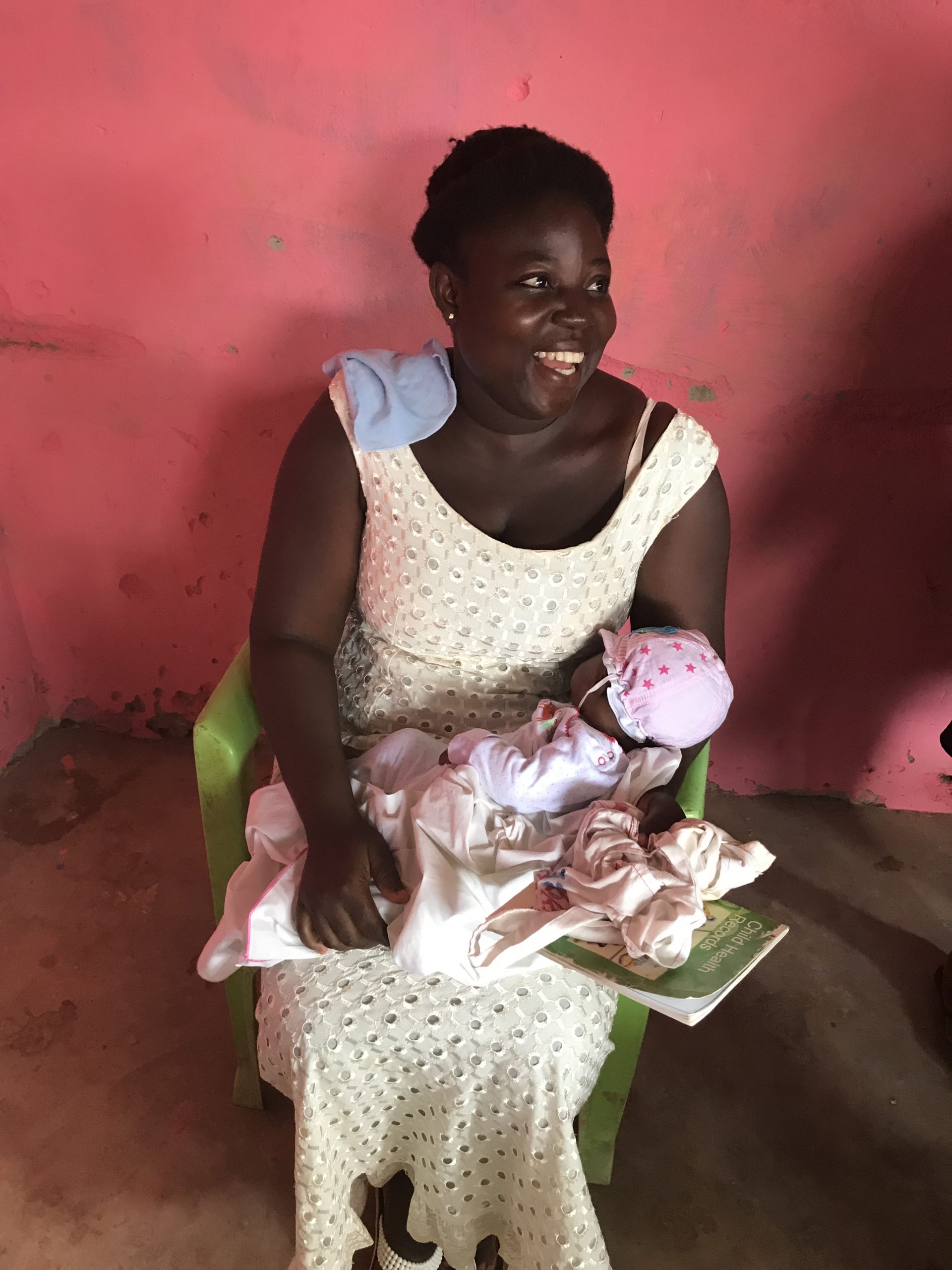In the summer of 2018, Olivia Tuttle and two fellow BYU students sat in the office of Sammy Ofosu, a district director of health with Ghana Health Service. He asked if he could begin the meeting with a hymn and a prayer.
“He’s all about making an impact,” Tuttle said of Ofosu. “He is very aware of the problems and hard things in his community. And yet, he’s still motivated to keep working and keep moving forward, which I think is awesome.”
One of the hard things facing Ofosu’s community is maternal health and mortality. In rural Ghana, many women do not receive the care they need during their pregnancy, and many deliver their babies at home instead of at a health clinic. This can lead to serious complications, even death.
Tuttle and her teammates had gone to Ghana to combat maternal mortality as part of a project through the BYU Ballard Center. Their goal was to implement the use of an existing app called Medic Mobile to help nurses monitor the pregnant women in their communities.
Under the direction of Ofosu, the team trained a group of community health workers to use the app. But network connection is spotty in Ghana, and the technology didn’t function well. “It basically failed completely,” Tuttle said.
 Creating A New Solution
Creating A New Solution
Tuttle describes Ghana as unique and beautiful, but also as one of the poorest places she’s ever seen. “It can be overwhelming, in a way, because you do just feel the magnitude of living conditions and how difficult it might be for those who live there. Obviously, there is a variety of living conditions. But for the most part, you cannot get away from the poverty in Ghana—it’s just there.”
After seeing firsthand the challenges of life in Ghana, Tuttle and her teammates couldn’t give up on their goal to help. After returning home, they decided to create their own app, one that could work offline. It’s called Maame, which means “mother” in Twi, a common Ghanaian dialect.
The app allows nurses to create profiles for the pregnant women in their communities and then tracks when each woman needs to be visited. It also provides an index of health information that nurses can use to educate patients.
The following summer, the team returned to Ghana and trained about 80 community nurses to use Maame on their personal smartphones. Clay Coleman, the app developer, was able to make changes on the app in real time, as the team received feedback from the nurses.
“It was awesome,” Tuttle said, “because they were technically building it. . . . It was something that they wanted, something that they built and asked for.”
 Looking Forward
Looking Forward
Currently, the app is still in its year-long pilot phase. The Maame team doesn’t have enough data yet to measure the impact of the app, but feedback from the nurses has been very positive. Tuttle hopes to return to Ghana this summer to see how everything is running.
As for the future? A lot depends on the data they gather.
If Ofosu considers the app successful, he could recommend it to other Ghanaian districts. The team would also like to take the app to other countries, especially in South America. But first they would need to analyze the needs of those places. Maternal mortality is a global problem, but the Maame app is personalized for the needs of health workers in Ghana.
Human Capacity
Looking back on her trips to Ghana, Tuttle said, “I’ve learned a lot about human capacity. . . . That’s the main takeaway from Ghana: humans are very capable of doing hard things and making a difference in their communities.”
Travel teaches us many lessons, but perhaps the most important is that we are all human. And as we learn, we can also give.
“Anytime you travel,” Tuttle said, “it opens your eyes to opportunities, and people, and making connections. And I think that’s just so beautiful.”
—Meg Yost
Want to Help? For those who want to make a difference in the world, Tuttle recommends starting with the BYU Ballard Center, which holds classes and runs competitions for social innovation.
“The Ballard Center is unique in the way that it is all about social innovation. And about not only traveling and seeing the world and having amazing experiences, but being able to do good better, to do things that could make an impact in the world.”
For more information about Maame, visit maame.org or contact aob.maame@gmail.com.
For other opportunities to get involved and help support maternal and infant health throughout the world, check out some of these organizations:
Mothers Without Borders
Doctors Without Borders
UNICEF
Every Mother Counts



